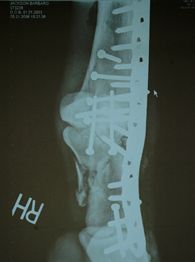Dan over at We Are Out Of Focus asks us to contact our Congresspeople and
support net neutrality. So does
Wil Wheaton, and plenty of other folks. Sadly, I'm torn, and I don't know which way to go on this.
Larry Lessig makes a great case for net neutrality in
The Future of Ideas. The Internet boom has, up until now, been made possible by the fact that the big backbone pipes have been "neutral" - that is, they have not discriminated between different kinds of packets of information. This gives software developers a stunning freedom. If you can encode it in TCP/IP, essentially, you can do it. Not impressed by searching FTP servers through Archie? You're free to write Gopher. Want pictures on your Gopher server? Help develop HTTP and the World Wide Web. Static pictures too boring? Well, here's a million different ways to transmit video... and if that's not enough, why not just write your own. As long as access to the network is "neutral," almost anything could be a hit.
Contrast this to the telephone wires. For years, it was illegal to attach anything to the telephone network without AT&T's prior approval. That policy probably provided essential network stability in the early days, but without any doubt, it eventually held back American innovation.
Or take the radio spectrum. Current regulations state that new technologies must prove that they do not harm existing uses of spectrum. Most schools of logical thought think it's impossible to prove a negative, but that won't stop the FCC from requiring it. The result, of course, benefits old businesses like Clear Channel by burdening innovators working on something... oh what's that word...
good.
So yeah, net neutrality sounds really good. But that hobgoblin of my little mind keeps saying "wait a minute, don't you think government regulation of the Internet is bad"?
Aw, shucks.
Let's take a real example. During the dot-com bubble, the telecom companies laid a ton of fiber optic cable all over the great state of Ohio. The market for this high-speed cable never quite materialized, and a lot of this fiber is sitting dark.
The governor got a neat idea: what if we leased a whole mess of this "dark fiber", and set up an intra-Ohio high speed educational network? It'll encourage collaboration between Ohio's schools, it'll substantially increase access to
OhioLINK's brilliant digital resources, and at least the telcos won't think Ohio is a total loss.
Great idea... but not necessarily a neutral one. The offer isn't open to commercial institutions. The Third Frontier Network is amazingly economical, but not free; one interpretation might be that any dollar a college or university spends on privileged academic bandwidth is a dollar not spent on "neutral" bandwidth.
It'd be easy to say that this is too obviously a good idea for the law to stop it. Sadly, our government has an abysmal record on understanding new technology well enough to write good law about it. I have an incredible faith that, whatever posturing buzzwordy document the Congress passes, it will be filled with unintended and negative consequences.
One of my problems with the bills in question is that I've failed to find an actual informed review of them. I can't figure out what the damned bills say myself, and the duelling press releases sound equally good (and equally fictional), so I don't even know what to say if I do write my congressman.
Certainly, I don't want big multinationals able to box out sites they don't like. Just as certainly, I don't trust Congress to tell the Internet what its core principles are. If I had to make a choice, I'd likely tell Congress to sit down, shut up, and let us figure it out ourselves.

 I only watch about three horse races a year. If I'm home and happen to catch the Breeders' Cup races, that's a super-bonus. (Imagine... more than one race in a 3 hour telecast!)
I only watch about three horse races a year. If I'm home and happen to catch the Breeders' Cup races, that's a super-bonus. (Imagine... more than one race in a 3 hour telecast!)










